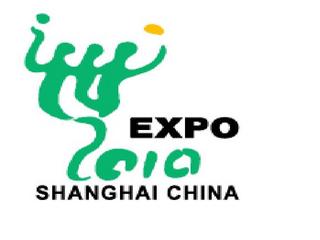The legal issue is the degree to which law limits company_s discretion in licensing its intellectual property.
Published:
14 February 1999 y., Sunday
On Feb. 23, the curtain goes up on the other big high-tech trial in Washington, D.C.--the Federal Trade Commission_s case against Intel Corp. Compared with the Microsoft Corp. trial, this dispute will seem less dramatic. On its face the case addresses concerns about Intel_s contracting policies; the real legal issue, however, is the degree to which antitrust law limits a tech company_s discretion in licensing its intellectual property. The speed with which new technology comes to market depends upon the industry_s ability to sidestep intellectual property conflicts using licensing and cross-licensing agreements; thus, any limits the FTC imposes on the right to negotiate and enter into these agreements could affect the industry significantly. Intellectual property (patents, copyrights and trademarks) is the only truly bankable product the high-tech industry produces. In many instances, its value can be realized only when it is combined through licenses and cross-licenses with intellectual property owned by others. Often thousands of technology patents, copyrights and trademarks held by hundreds of companies are licensed and cross-licensed to produce a single product. Given the thicket of intellectual property rights in this industry, even giants such as Intel, Microsoft and Compaq Computer Corp. cannot deploy new technologies without first licensing intellectual property. Intel, like many high-tech companies, regularly conditions the granting of a license to its technology on the licensee_s willingness to grant Intel a reciprocal cross-license to use the licensees technology. This has created a highly efficient, barter-based market that has helped clear away the potential infringement claims that might delay the deployment of new technology. The FTC became involved when one of the participants refused to barter. Workstation manufacturer Intergraph Corp. (Huntsville, Ala.), which had acquired the Clipper RISC (reduced instruction set computing) processor from National Semiconductor Corp., refused to cross-license certain Clipper-related technologies to Intel -even though Intergraph had licensed Intel_s technology. Intergraph eventually sued Intel for patent infringement, and Intel revoked Intergraph_s license. Other Intel dustups involving Compaq and Digital Equipment Corp. apparently prompted the FTC to act.
Šaltinis:
Internet
Copying, publishing, announcing any information from the News.lt portal without written permission of News.lt editorial office is prohibited.
The most popular articles
 Mr. Olli Rehn, European Union Commissioner, and Mr. Dominique Strauss-Kahn, Managing Director of the International Monetary Fund (IMF), issued the following joint statement on Greece.
more »
Mr. Olli Rehn, European Union Commissioner, and Mr. Dominique Strauss-Kahn, Managing Director of the International Monetary Fund (IMF), issued the following joint statement on Greece.
more »
 The offering of shares of the new issue will commence on 03-05-2010.
more »
The offering of shares of the new issue will commence on 03-05-2010.
more »
 The World Bank today approved a $12 million IDA credit to Bhutan, designed to improve infrastructure services in parts of the capital city of Thimphu where no formal services are currently available.
more »
The World Bank today approved a $12 million IDA credit to Bhutan, designed to improve infrastructure services in parts of the capital city of Thimphu where no formal services are currently available.
more »
 Fisheries ministers and stakeholders alike will be discussing the future shape of the EU's Common Fisheries Policy at two major events in Spain over the next days. On 2 and 3 May, in La Coruña, the Commission and the Spanish Presidency are organising a large stakeholder conference on the reform of the Common Fisheries Policy.
more »
Fisheries ministers and stakeholders alike will be discussing the future shape of the EU's Common Fisheries Policy at two major events in Spain over the next days. On 2 and 3 May, in La Coruña, the Commission and the Spanish Presidency are organising a large stakeholder conference on the reform of the Common Fisheries Policy.
more »
 Asia is leading the global recovery and the region’s contribution to global growth will continue to exceed that of other regions in the next two years, the International Monetary Fund (IMF) said today in its latest Regional Economic Outlook (REO) for Asia and the Pacific.
more »
Asia is leading the global recovery and the region’s contribution to global growth will continue to exceed that of other regions in the next two years, the International Monetary Fund (IMF) said today in its latest Regional Economic Outlook (REO) for Asia and the Pacific.
more »
 The EBRD is supporting the modernization of the electricity distribution network and the development of renewable energy sources in Poland with a PLN 800 million loan (equivalent to approximately €205 million) to the Energa energy group in order to help the company strengthen its power grid.
more »
The EBRD is supporting the modernization of the electricity distribution network and the development of renewable energy sources in Poland with a PLN 800 million loan (equivalent to approximately €205 million) to the Energa energy group in order to help the company strengthen its power grid.
more »
 At the beginning of the summer this year, Vilnius will become the capital of the Baltic Sea region. On 1-2 June 2010, the city will host the Baltic Sea States Summit and the Baltic Development Forum (BDF) Summit.
more »
At the beginning of the summer this year, Vilnius will become the capital of the Baltic Sea region. On 1-2 June 2010, the city will host the Baltic Sea States Summit and the Baltic Development Forum (BDF) Summit.
more »
 Visitors of the World Expo 2010, which will open in the Chinese city of Shanghai on May 1st under the slogan “Better City, Better Life” and will last for 184 days until the end of October, are kindly invited to get into a hot air balloon at the Lithuanian Pavilion.
more »
Visitors of the World Expo 2010, which will open in the Chinese city of Shanghai on May 1st under the slogan “Better City, Better Life” and will last for 184 days until the end of October, are kindly invited to get into a hot air balloon at the Lithuanian Pavilion.
more »
 According to preliminary data, unaudited net loss sustained over the first quarter of the year 2010 by SEB Bank is LTL 59,4 million (EUR 17,2 million) and that by SEB Bank Group is LTL 80,3 million (EUR 23,3 million).
more »
According to preliminary data, unaudited net loss sustained over the first quarter of the year 2010 by SEB Bank is LTL 59,4 million (EUR 17,2 million) and that by SEB Bank Group is LTL 80,3 million (EUR 23,3 million).
more »
 European Globalisation Adjustment fund (EGF) aid must be delivered faster and more simply to unemployed workers hit by the financial crisis or globalisation, concluded the Budgets and Employment committees after evaluating the fund on Wednesday.
more »
European Globalisation Adjustment fund (EGF) aid must be delivered faster and more simply to unemployed workers hit by the financial crisis or globalisation, concluded the Budgets and Employment committees after evaluating the fund on Wednesday.
more »